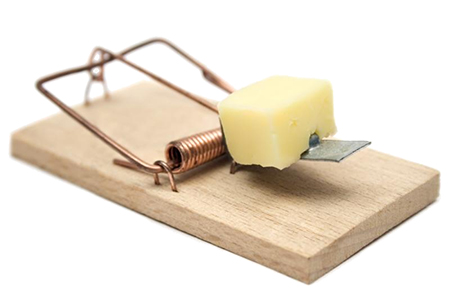

College prep is a confusing term because it can refer to three different things!
Sometimes, calling something a college prep class is just a way to differentiate it from remedial classes on the one hand, and honors/AP classes on the other. Other times, college prep is a way of describing a bunch of government or private programs that are designed to increase access to college for those who would ordinarily be unlikely to go. And finally, college prep is a short name for high schools that place an overwhelming emphasis on getting their students into college.
But don't worry. Whether you want to read about standard high school classes, learn about programs that will make college easier, or are curious about public and private high schools that really stress college admission, you've come to the right place.

Since the goal of high school is to prepare students for college, it makes sense that the classes that you take in high school are called "college prep classes." After all, the way you get ready for college is by learning what there is to learn in high school!

Actually, those are books - they're for reading, not chinups.
So, the first and most common definition of the term "college prep" is the core requirements of a high school education. They differ from school to school, but typically go something like this:
In states and districts that require a high school exit exam in order to graduate, these are the subjects that this exit exam is based on. For example, Massachusetts doesn't let students graduate unless they can pass the MCAS exam in English, math, and one science or technology subject.
Because "college prep" refers to the core set of high school classes, this term has basically become the way to identify the standard class level. College Prep is the class you will take when you are not being challenged by the honors or AP version of a class, and when you are not placed into the remedial version of the class for catch-up.
When you start planning your high school curriculum, you'll face a tough decision. Should you stick with the standard (or college prep) classes in order to have a higher GPA, or should you challenge yourself and take the Honors or AP course where you'll probably do a little worse?
The answer is: challenge yourself - within reason. Typically, you should go with the harder level class if you think you can earn a B or higher because generally, most colleges would rather see a B in an Honors or AP course than a set of straight A's in college prep classes. Straight As in all college prep courses looks like you are avoiding the challenge of honors/AP, and colleges don't like challenge-avoidance in their applicants.

Don't get trapped by the lure of easy A's!
The idea is to demonstrate that you are challenging yourself, and also that you are mastering the material. Getting a B grade says "I'm just very slightly reaching past my grasp." On the other hand, avoiding honors or AP classes where you will most likely get a C or D shows self-knowledge and mature judgment - another thing colleges tend to value. Taking too many honors and AP classes and ending up with mostly C's and D's implies that the standard classes would have been a better fit.
So what should you do? Our advice is to try to take 1-2 of honors or AP courses, maybe in subjects you feel most comfortable in, or those where your strengths lie, or those you're most interested in pursuing further. To check out the different options, check out our guides that break down each core subject progression:
Sometimes the term "college prep" is a way of referring to a set of programs that work to increase college access, especially for students who are least likely to enroll. These programs focus on building academic skills, handle college admissions or financial aid, involve families and mentors, and sometimes incorporate service projects.

With the right support, anything is possible.
Here are some examples, divided into federal, state, university, and community-based categories.
These programs are targeted to assist low-income, first-generation, and disabled students.

Sometimes a little local support is what you need.
Finally, "college prep" can refer to a specific type of high school, where lots of focus is placed on the concept of college. These schools can be public, private, boarding, parochial, and charter schools - just as long as what they most emphasize is getting into and graduating from college.

College admission - and graduation - makes the world your oyster.
Here are some examples of these kinds of schools:
Want to see how rigorous a curriculum you should go for? Check out our discussion of what makes course load challenging.
Worried your GPA is too low to try for an honors or AP course? See how your numbers stack up in our good GPA/bad GPA roundup.
Exploring your less-competitive college options? Learn about your options for the best colleges with low GPA requirements.